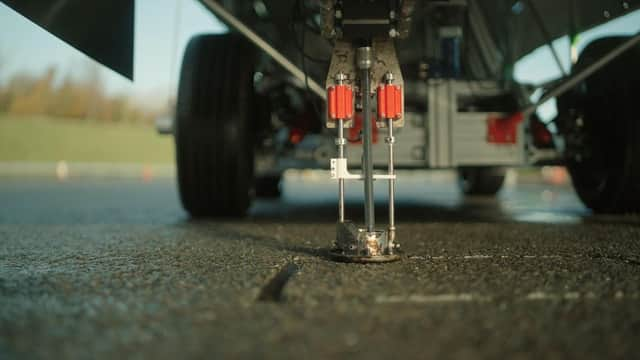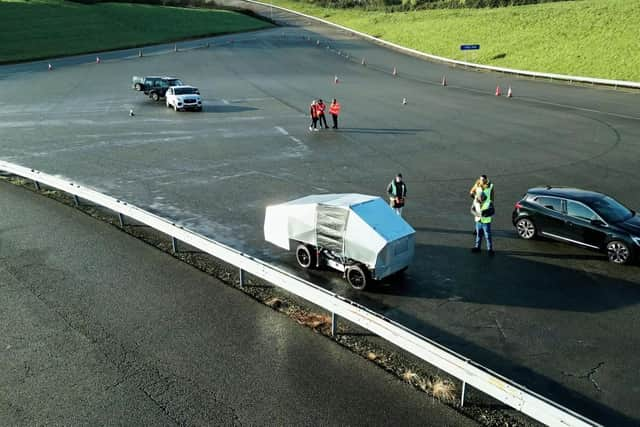World's first pothole repairing robot prepares to take to Hertfordshire roads for a test drive


An autonomous robot, developed in partnership with Hertfordshire County Council is set to pass its first test outside of a lab environment, on the roads of Hertfordshire.
Using state of the art imaging technology, tech company Robotiz3d, Liverpool University academics and highways engineers have now developed the first Autonomous Road Repair System (ARRES).
Advertisement
Advertisement
The robot, officially called ARRES PREVENT, identifies and characterises cracks and potholes in the road using Artificial Intelligence (AI). It then automatically fills the cracks to keep out surface water. It could save time and money as well as reduce the disruption potholes cause to road users.


The brand-new technology could revolutionise the way Hertfordshire and the rest of the world deal with potholes and issues with road surfaces in the future.
The majority of funding for the project has come from Innovate UK, but other investors have also been involved at different stages of technology development.
The robot still in its pilot phase and has been tested in a lab environment extensively, but it is due to hit the roads of Hertfordshire early this year for a ‘real-life’ road repair on a residential street.
Advertisement
Advertisement
This piece of kit is the first of its kind in the world and has been in development since 2020.
Cllr Phil Bibby, council highways member, said: “We’re thrilled to be at the coalface of this exciting new technology, working with world-class tech inventors and engineers. We’ve long been leading the way in cracking the pothole issue and in recent times have been trialling new and improved ways to fill potholes. As we continue to face another cold winter, we know we’re likely to see an increase in potholes forming as the road surface gets too cold and water and ice get into cracks that have formed over time. Using state of the art technology to prevent the potholes forming in the first place could be exactly what we need to ensure our road network remains one of the best in the country. We know this issue matters to our residents, so it matters to us too.”
Potholes can be reported by visiting the council website.